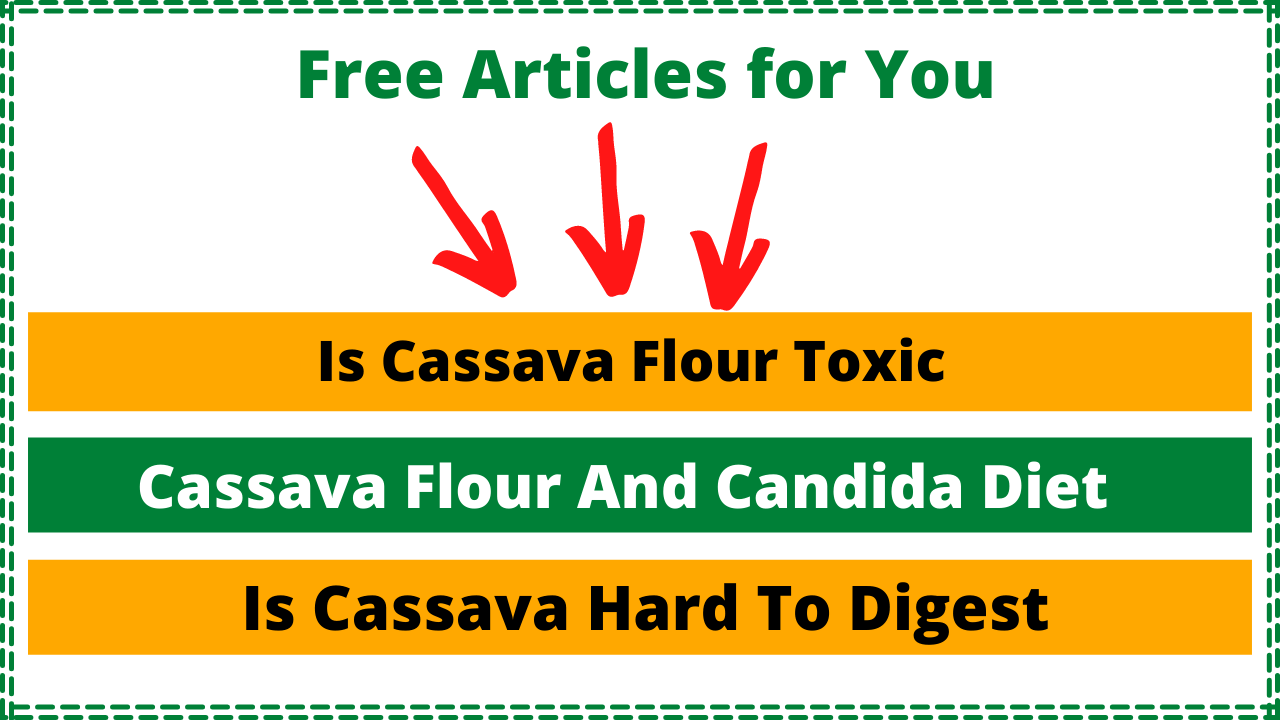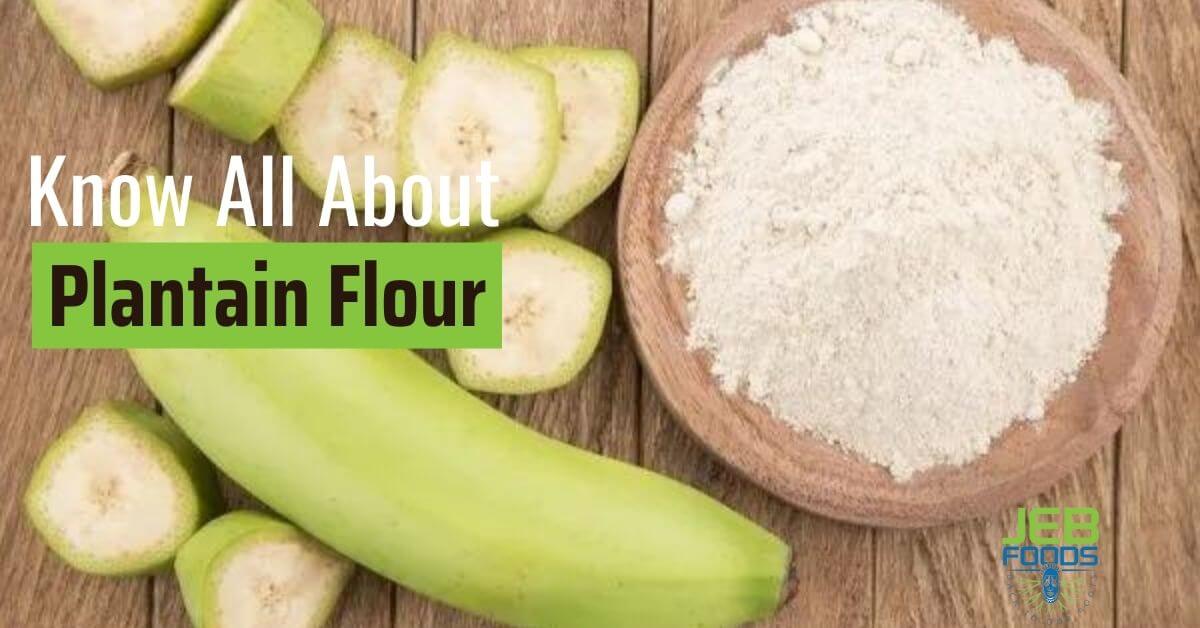Cassava has a lot of side effects, which can be beneficial but understanding the side effects of cassava can reduce the risk of danger and ensure good safety of your health.
Cassava is a delicious and nutritious root, which has been a delicacy in many nations around the world, but eating it raw can be harmful to one’s health.
Although my whole life as a farmer, cassava root has been a great impact on my health and life at large
But did you know that raw cassava contains cyanide, a dangerous chemical that can cause poisoning, paralysis, intoxication, rapid respiratory failure, goitre, and even death.
These are the most severe side effects of eating raw cassava roots or tubers, but there is a method to avoid them.
Without wasting your time, I will like to share with you the dangers of cassava side effects to health and how to get rid of cassava poisoning to ensure a good health
Get The Full Detail Of The Health And Nutritional Benefits Of Cassava Flour
Can Cassava Make You Sick?
Table of Contents
ToggleYes, eating raw or undercooked cassava might make you more susceptible to environmental diseases, which will have a negative impact than good on your health.
The amount of poisonous substance detected in two cassava roots is enough to kill an adult or make you prone to diseases.
Cassava is a root vegetable that is commonly utilised around the world, and it is one of the most fabulous foods for acquiring nutrients that are beneficial to your health.
Cassava has a natural toxin that, if not handled appropriately, can cause harm to one’s health through illness.
Are You Allergic To Flour Find Out Here And To Which
Is It Still Safe To Eat Cassava?
I regularly get this question from folks interested in incorporating cassava into their everyday routine.
When it comes to cassava, my response is clearly yes, because it is the third-most significant food source in tropical regions,
And cassava is likely safe for people when ingested in typical dietary quantities on an infrequent basis, provided it is cooked appropriately.
In addition to being eaten whole, grated, or cut into chips, cassava can also be consumed in several other forms.
Furthermore, it is pounded into flour, which is then used in cooking or the creation of cassava-based items like pieces of bread, crackers, and puddings, among other things.
On the other hand, cassava contains a high concentration of cellulose and is insoluble. And is a type of dietary fibre that aids digestion and aids in the reduction of constipation and diverticular disease.
Cassava is a vegetable that is a mainstay in many people’s diets worldwide. It is a good source of nutrients.
I understand that cassava is an essential edible plant, but you should be aware that it can be toxic if not handled properly.
On the other hand, cassava has compounds that can induce paralysis in certain people. Children are more vulnerable to these side effects than adults.
In addition, eating cassava more often has been related to low blood levels of various vitamins in the body.

Does Eating Too Much Cassava Have Any Side Effects?
Yes, eating too much cassava is potentially dangerous when regularly consumed in average food or improperly prepared.
Cassava is a pleasant and nutritious root, but it can be harmful to the health of people who consume it raw.
If taken in significant numbers, raw cassava may contain toxins that can cause poisoning.
Yes, it’s quite safe to eat cassava, but excessive cassava intake might impair thyroid function, especially in an iodine deficiency.
Cassava contains a high concentration of potassium and magnesium ions,
in some areas of the world, cassava has been shown to absorb toxic chemicals from the soil, such as arsenic and cadmium.
This may increase the risk of cancer in people who eat a lot of cassava.
Excessive eating can quickly disrupt the sodium-potassium balance in physiological fluids, resulting in abnormal cell osmotic pressure.
The following are the most dangerous side effects of consuming excessive cassava.
Anti-Nutrients
This is the main disadvantage of this root vegetable. They can obstruct digestion and prevent the body from absorbing vitamins and minerals.
This can interfere with the absorption process, increasing the likelihood of malnutrition.
When we consume meals that are strong in these anti-nutrients, the impacts of these substances become even more prominent than they already are.
This negative effect is more common in people who consume cassava roots frequently and exclusively.
To minimise the negative influence of the anti-nutrients on your health, you should balance the quantity of cassava you eat in your diet.
Iodine Deficiency
Cassava may reduce the quantity of iodine absorbed by the body. Cassava consumption may worsen iodine deficiency in persons with low iodine levels.
Protein Deficiency
Cassava contains compounds that can have catastrophic consequences if consumed in large amounts.
People with metabolic issues or trouble absorbing protein are at a higher risk of cyanide poisoning since protein aids in the removal of cyanide from the body.
People who consume a low protein intake may be more susceptible to these harmful effects.
Thyroid Disease
Cassava consumption may reduce thyroid hormone levels. Cassava consumption may aggravate thyroid illness in those who require thyroid hormone replacement medication.
It primarily affects those who consume cassava regularly and long-term and has a low nutritional condition.
Consuming large quantities of cassava daily might potentially have a harmful influence on one’s health.
In some cases, cassava consumption has been linked to paralyzed legs in children, increased risk of goitre, and even illnesses such as TAN and intoxication.
While fermenting in the intestines, it is also thought to serve as a prebiotic, a kind of fibre that aid in the growth of probiotic bacteria.
Cassava consumption has also been associated with reduced blood levels of some vitamins in youngsters.
Children who consume a lot of cassava may be more likely to acquire certain paralysis disorders.
Starchy foods such as cassava and sweet potatoes can produce stomach bloating. When consumed in high numbers,
Consuming raw or inadequately cooked cassava regularly, especially
What Is The Side Effect Of Eating Raw Cassava?
Eating raw or improperly cooked cassava might result in serious health consequences.
Even in areas where cassava is a well-known element of the cuisine, researchers have indicated several risks associated with eating it, including ingesting excessive amounts of active cyanide.
People consume 60 percent of the cassava harvested, with one-third of the crop being used to feed livestock.
Cassava can induce an allergic response in some persons who consume it.
The poor preparation of cassava might result in compounds that can be turned into cyanide in the body.
This may result in cyanide poisoning and the development of certain paralytic diseases.
Cassava contains a poison known as “linamarin.” It is chemically identical to sugar but has a CN ion.
When consumed uncooked, the human digestive system converts it to cyanide toxicity. A deadly quantity of poison can be found in just a few pieces of cassava root.
Cassava roots have less than 10% of the linamarin content of cassava.
The toxins’ accumulation in the body can have adverse effects on the liver and kidneys and in some brain regions.
Another difficulty that raw cassava eaters suffer is endemic goitre, which is caused by thiocyanate in the meal. This substance has the potential to interfere with thyroid gland function.
What Are The Side Effects Of Cassava In Pregnancy?
It is quite easy to get caught up and overwhelmed by the amount of information available on what you may and cannot eat, drink, or do during pregnancy.
Even though cassava roots contain vitamins and minerals that are particularly beneficial during pregnancy,
certain specific harmful effects should be avoided if at all possible while eating cassava roots.
Cassava is a root vegetable consumed whole or crushed into flour for baking, popularly known as tapioca in many countries across the world.
The eating of cassava may expose the infant to toxins that might damage the thyroid function in the future.
However, cassava consumption regularly as part of your diet while pregnant or breastfeeding is likely unsafe.
It can cause birth abnormalities as well. Cassava is also more harmful if inserted into the vaginal canal.
It has the potential to stimulate the uterus to contract. This has the potential to result in a miscarriage.
According to general recommendations, women should avoid consuming cassava routinely during pregnancy or nursing
since it is ‘potentially dangerous’ and might be deadly if consumed raw or incorrectly prepared.
What Are The Symptoms Of Cassava Poisoning?
It may be difficult to detect the signs and symptoms of cassava poisoning.
Cyanide is a poison that is exceedingly rare and yet can be devastating. It acts by preventing the body from utilising life-sustaining oxygen.
Consumption of cyanide has consequences that are very comparable to those of asphyxia.
Therefore, For the body to be poisoned, cyanide must first utilise oxygen, which is required by all cells for the body to be poisonous.
In humans, the clinical sign consists of the following elements:
- general weakness,
- confusion,
- headache,
- excessive sleepiness,
- vomiting,
- coma,
- Nausea
- bizarre behavior,
- shortness of breath,
- dizziness,
- seizures.
Someone who has been poisoned by cyanide may have unusually pink or cherry-red skin because oxygen is retained in the circulation and does not reach the cells.
You might also breathe exceedingly quickly and have a heart rate that is either extraordinarily fast or incredibly slow. The person’s breath may occasionally have a bitter almond scent, although it can be challenging to identify.
Survivors of severe cyanide poisoning may suffer from heart, brain, and nerve damage due to their exposure.
In cases of cyanide poisoning, death can occur when the concentration of cyanide in the blood surpasses the point at which the individual’s capacity to detoxify is weakened.
If you suspect that you or a loved one is suffering from acute cyanide poisoning, seek emergency medical attention immediately and seek treatment.

How To Get Rid Of Cassava Poisoning?
It is possible to avoid cassava poisoning in many instances if the proper measures are taken.
Because of the high cyanide content in cassava, it is recommended that users get it from a trusted source.
Commercially produced cassava is often free of harmful amounts of linamarin and is therefore completely safe to consume in large quantities.
Even though these harmful chemicals may be found in all parts of the cassava plant, the amounts vary depending on the variety of cassava used.
The “sweet” variety has just trace amounts of these chemicals, but the “bitter” type contains a large amount and should be thoroughly processed before use.
In addition, you should follow the steps described below to get rid of cassava poisoning completely.
Cassava should always be peeled before consumption to avoid cyanide poisoning since the cyanide is more concentrated on the root tuber’s surface.
- Peel the cassava root from its skin.
- Cut it into tiny pieces by slicing or cutting it.
- Soak them in water for 4 – 6 days.
- Boil them until they are tender and thoroughly cooked.
- Discard any cooking water that has accumulated.
However, most health organisations, including the Centres for Disease Control and Prevention (CDC), recommend that sweet cassava tubers be soaked in water for 4–6 days before consumption.
More intensive processing, such as grating or crushing and soaking in water, is required for bitter kinds of cassava before being boiled. On the other hand, Bitter cassava is not widely available in the United States.
Processed cassava products, such as tapioca pearls and cassava flour, are safe to use without the need for pre-cooking, making them ideal for baking, frying, and boiling applications, among other things.
Final Thoughts
Getting cassava from a reliable and trusted source, in my opinion, has more to do with the health effects and advantages of cassava.
On the other hand, cassava has been a nutritious meal for my family and a personal favourite of mine from the beginning of time, owing to the numerous health advantages it provides.
Having gone through this article with me, I am sure that you now understand the side effects of cassava and how to eliminate cassava toxins, which may be harmful.
However, adequate preparation is required to avoid adverse health impacts. Avoid eating it raw in particular.
Don’t allow the side effects of cassava to deprive you of the potential health benefit of cassava because you now know how to deal with it by following the necessary measures.
Here Is My Recommendation For You Jeb Foods Gluten-Free, Grain-Free, Nut-Free Cassava Flour




